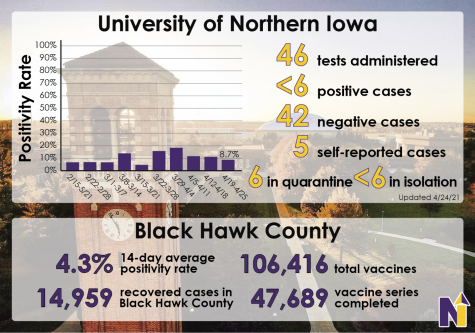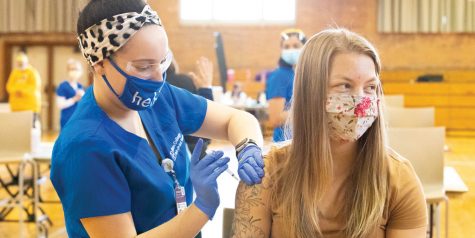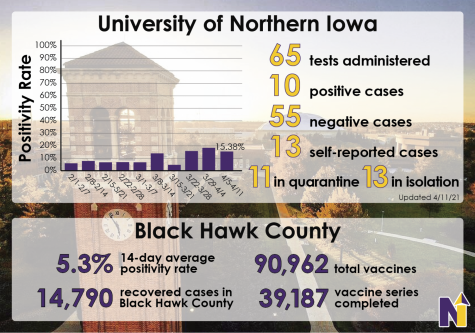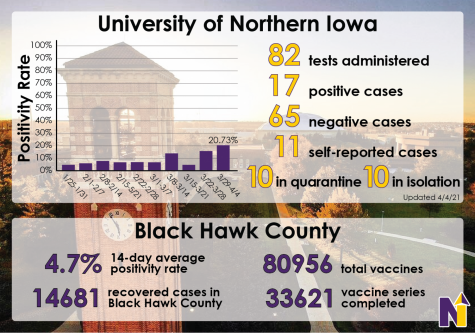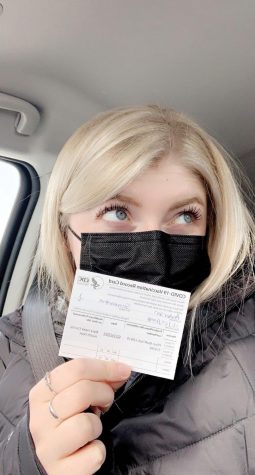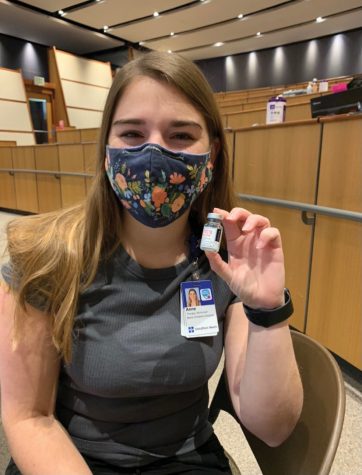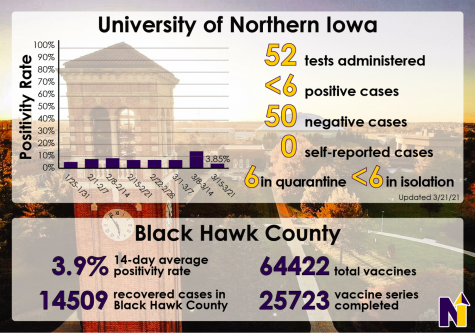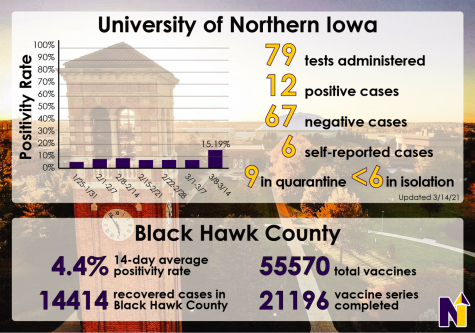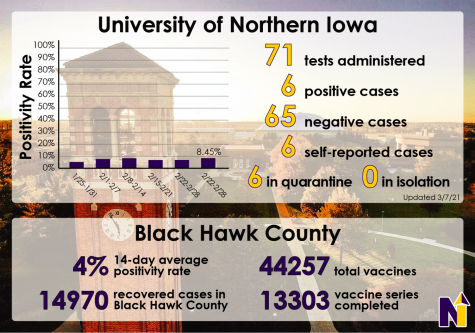COVID-19 updates: U.K. variant in Iowa, winter masking tips
Feb 4, 2021
The UNI COVID-19 Response Team this week urged caution and vigilance among the UNI community as a variant of the COVID-19 virus was announced to have been detected in Iowa for the first time.
On Monday, Feb. 1, the Iowa Department of Public Health confirmed three cases of the B.1.1.7 (UK) variant in Iowa, including one case in nearby Bremer County. The other two cases, according to KWQC in Davenport, are located in Johnson County.
Health officials believe the B.1.1.7 strain can spread easier than the original strain of SARS-CoV-2, but that it does not appear to cause more severe illness. The current COVID-19 vaccines are also considered to be effective against the variant strain.
“The arrival of this variant to Iowa underscores the importance of wearing a face covering, physically distancing, washing your hands and completing the Panther Health Survey,” the COVID-19 Response Team wrote. “The CDC is working to learn more about the various COVID-19 variants and UNI’s COVID-19 Response Team, in collaboration with our public health partners, is monitoring the situation closely.”
In their message, the COVID-19 Response Team also addressed a unique aspect of the COVID-19 pandemic: the difficulties of mask-wearing in winter weather.
As temperatures in the Cedar Valley are expected to drop in the next week, including several days with highs in the negative degrees, the message emphasized that scarves, ski masks and other similar winter gear are not suitable for preventing COVID-19 transmission, since they are typically made of loosely knit fabrics. These items should instead be worn over a mask, according to the CDC.
“Along with exposure to snow or rain, your mask can become wet just from breathing in cold air, which makes it less effective,” the email stated. “A wet mask is harder to breathe through, is less efficient at filtering and vents more around the edges. Be sure to change your mask if it’s wet… (and) if your reusable mask becomes wet, the CDC recommends you put it in a sealed plastic bag until it can be washed.”








